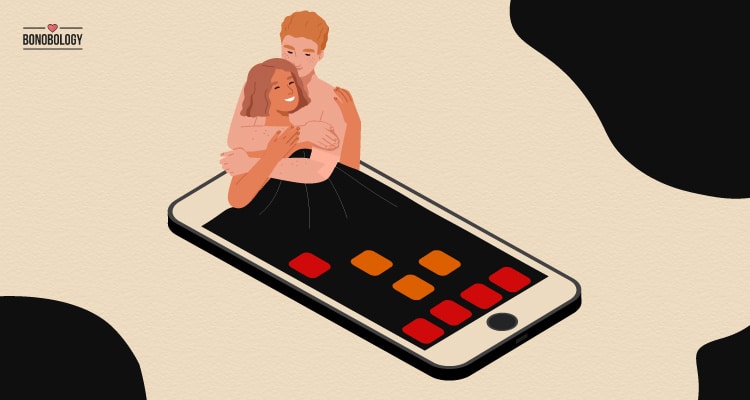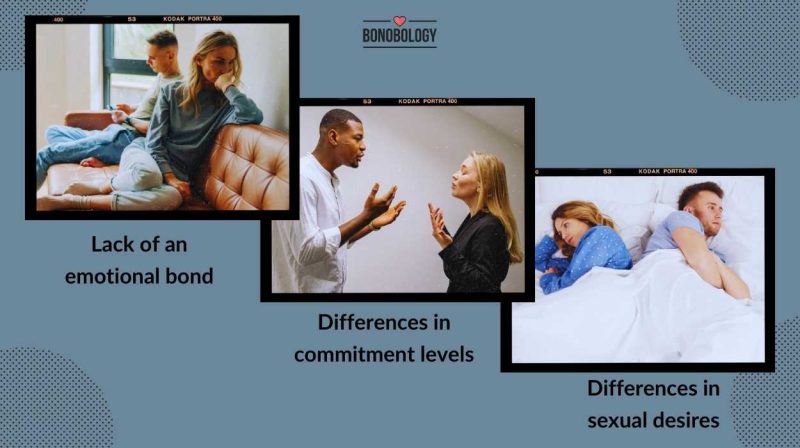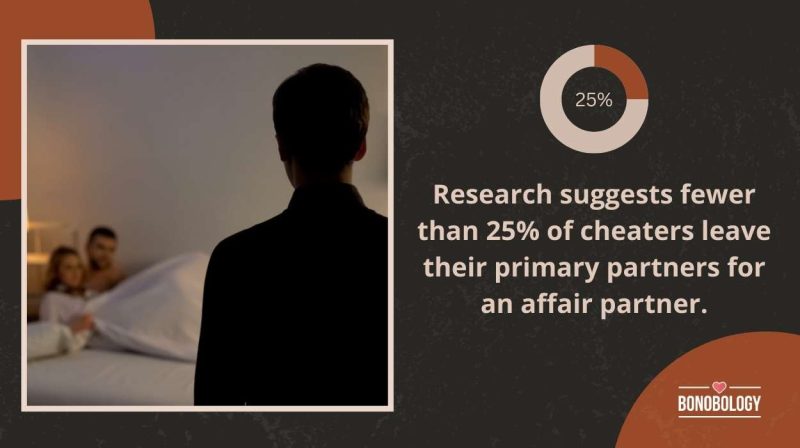It was an unremarkable Thursday. Ava was going through the motions of the daily grind, fretting over deadlines while making a mental note of errands and chores that awaited her at home when a message popped on her Facebook Messenger. It was the ex who had dumped her because he wasn’t ready for commitment. Five years later, a simple ‘hey’ opened the floodgates of what could have been.
Just like that, Ava and Jeremy were hooked. Texting back and forth at every opportunity they could steal, catching up on each other’s life, reminiscing about the past, and talking about everything under the sun. Unresolved feelings and sexual tension crawled in the equation before either could make sense of what it was they were doing and where it’d lead them. Before they knew it, they were already in the thick of a virtual affair.
Ava’s story is not hers alone. It could just as easily be that of Ashlyn or Adam or Ananya or Ayesha. It carries within it the anatomy of online affairs that are becoming increasingly common as our lives become deeply integrated with technology. But what prompts virtual connection, what keeps people hooked to them, is having a virtual relationship considered cheating, and are these emotional and sexual connections sustainable?
We explore the answers to these questions and take a closer look at what is virtual infidelity in consultation with psychologist Nandita Rambhia (MSc, Psychology), who specializes in CBT, REBT and couples counseling, including extramarital affair counseling.
What Is Virtual Infidelity?
Table of Contents
One of the key reasons propelling the rise of online affairs is that virtual infidelity is often hard to define. Unlike an affair in a real-life setting, there are no clandestine meetings in a virtual affair, no ‘actual’ physical cheating, no elaborate lies to cover up one’s whereabouts. This can lead people to question: is having a virtual relationship considered cheating?
Besides, the entire nature of an online connection can be too dynamic to be boxed into what qualifies as cheating and what doesn’t. Online affairs often begin with casual chatting and harmless flirting, which makes people justify it to themselves as not crossing a line. When they get pulled in too deep and an emotional and sexual connection takes hold, the absence of real-world contact makes them view it as innocuous.
In short, there is a lot of gray area that can make virtual affairs seem innocent enough to convince oneself that one is not betraying their partner’s trust. This is why it becomes crucial to define what is virtual infidelity. Simply put, virtual infidelity refers to an emotionally and sexually intimate relationship between two people who may not meet in real life.
For more expert videos please subscribe to our Youtube Channel. Click here.
In some cases, the two partners in an online affair may not even hear each other’s voices or see each other’s faces. This is why, despite the intimacy with the affair partner and dishonesty with the primary partner, online cheating may not appear to be a real affair to many. While it may seem innocent and inconsequential, online cheating is, at the end of the day, just another form of cheating.
An online affair, much like its real-world counterparts, can cause lasting damage to a relationship. The time invested in communication with an online connection is robbed of the time and attention toward one’s real-life partner and family, which can cause emotional neglect to seep into the dynamics. Not to mention the secrecy and lies destroy trust in the relationship, irrespective of whether the cheating comes to light or not.
Related Reading: 20 Myths And Facts About Cheating In A Marriage
The Allure of Online Affairs
Despite the stakes being so high, the co-existence of virtual affairs and marriage or long-term relationships is becoming increasingly common. What draws people to these virtual connections? And what keeps them hooked? Nandita explains by touching upon the factors that contribute to the appeal of online affairs:
1. Need
“Like all affairs, online affairs also stem from an inherent need. The desire to seek a connection outside marriage or a stable relationship is almost always a result of unmet needs in the primary connection. Perhaps, the relationship is going through a rough patch. In which case, one of the partners may use an online affair as a crutch to get through and survive.
“Alternatively, there could be something fundamentally amiss with the relationship – a loveless marriage, for instance – that makes people turn to others. At the same time, the proclivity to cheat depends on an individual’s level of commitment and value system as well.
“If a person has a high level of commitment, it would take something massive to push them to cross the line of fidelity in a relationship. On the other hand, someone who doesn’t attach much value to monogamy and commitment may stray easily,” says Nandita.
2. Thrill
“The allure of online affairs also stems from the huge thrill in connecting with people online. The attention, a sense of feeling desired, the sexual excitement and gratification can all give a person a huge kick, almost akin to a high. This alone is enough to keep them hooked and keep going back for more, be it with the same person or someone new,” explains Nandita.
A study carried out by psychology academics at The Open University in the UK also establishes that online infidelity can be addictive. A report by the American Association for Marriage and Family Therapy also points toward the possibility of addiction to online sex. The thrill of the experience plays a huge part in this.
3. Anonymity
“Apart from the thrill, connecting with absolute strangers online offers a sense of comfort and security, owing to the anonymity of the experience,” says Nandita. You can set up a profile with a fake name and photograph and connect with whoever takes your fancy and is interested in reciprocating.
Suddenly, the world seems to be your oyster for your romantic escapades, and you feel as if you’ve got nothing to lose because the ‘real you’ is not even out there. “This element of anonymity can also lead to a false sense of security that your marriage or primary relationship is shielded from virtual infidelity,” adds Nandita.
4. Access
“Online affairs are also gaining prominence for the sheer ease of access of it all. You just need to unlock a device to indulge in your wildest fantasies or seek emotional comfort or whatever else that may be driving you to build an intimate connection in the digital space. That can make breaching boundaries that much easier,” says Nandita.
As it happened in the case of Ava, it takes one text message to reconnect with an ex or one swipe to establish a connection with someone new. You no longer have to step out of your home, find a discreet place to meet, and cook up lies to cover your tracks.
Related Reading: Married But I’m In Love With Another Man And I Don’t Regret It
You can cheat on your partner while in bed with them. Because it is so easy, online cheating is being seen as a way to supplement what’s lacking in one’s relationship or simply break the monotony of day-to-day life.
The Impact of Online Affairs
Online affairs are convenient, exciting and addictive. But are they sustainable, harmless and innocent? Can an affair that exists only in the virtual realm turn into something long-term? What kind of impact does virtual infidelity have on the cheating partner and the one who is being cheated on?

“How an online affair plays out depends on the need driving it. If it is a connection formed to gratify purely physical or sexual needs, then it will, in all likelihood, fizzle out over time. The cheating partner may go on to form new connections, but any relationship based solely on physical needs lacks longevity.
“However, if the online affair is fulfilling an emotional need – for example, if you feel unloved in a marriage but the affair partner offers you the love and emotional intimacy you’ve been craving – then it may become a long-lasting connection despite its virtual nature,” says Nandita.
Speaking of the impact of online affairs on both partners in a relationship, she adds, “The impact of online affairs on a couple’s relationship as well as the individual partners’ state of mind is not very different from that of a real-life affair.
“I counseled a man who was involved in an online affair with a woman and felt confused and conflicted about the two relationships. He displayed the classic signs of cheating guilt, and at the same time, enjoyed his connection with this other woman and found gratification, as his emotional and physical needs were being fulfilled through this affair.”
However, sometimes the consequences of online affairs can be far more devastating than a case of cheating guilt, especially if the person involved in one isn’t clear about their own expectations and desires. “Another client of mine got into a string of online affairs and flings because she was in an emotionally void marriage.
“Each time, a new connection would make her feel excited and thrilled but while she found sexual gratification through these affairs, her emotional needs were still unmet. The situation was made worse by the fact that she was not able to separate the sexual from the emotional, which led to a lot of inner conflict and disappointment. She eventually slipped into depression.
“Through therapy, we were able to establish clear boundaries between her sexual and emotional needs, and that turned out to be her first step toward recovery,” shares Nandita.
She also adds that in many cases online affairs can also lead to the bond between primary partners being strengthened. “Many a time, cheating or engaging in a parallel intimate connection can make people more appreciative of their partners. If the affair is a source of temporary solace during a rough patch in the marriage, it can help bring a couple closer. Provided it is fleeting and never discovered,” she says.
The reasons for online cheating notwithstanding, if such an affair comes to light, it can be immensely hurtful to the partner. “A couple can recover from the setback for virtual infidelity but the key to healing is communication, understanding and a lot of forgiveness on the part of the partner who was cheated on.
“Both partners have to accept the fact their relationship won’t go back to the way it was once an affair is discovered, even if it happened in the virtual space. The relationship may change for the better or worse, but change it will,” she concludes.

Online affairs can be far more addictive than their real-life counterparts, owing to the ease of access and element of anonymity, and also equally devastating for the partner being cheated on. So, the next time you’re tempted to slide into the DMs of that ex or download that dating app, remember cheating is cheating. Tread cautiously, with complete awareness about what your actions amount to and the possible consequences.
Expert Weighs In On Dangers Of Reconnecting With An Ex While Married
The Secret Behind How An Extra Marital Affair Starts and How It Ends
11 Things You Didn’t Know Amount To Cheating In A Relationship
Your contribution does not constitute a charitable donation. It will allow Bonobology to continue bringing you new and up-to-date information in our pursuit of helping anyone in the world to learn how to do anything.





















